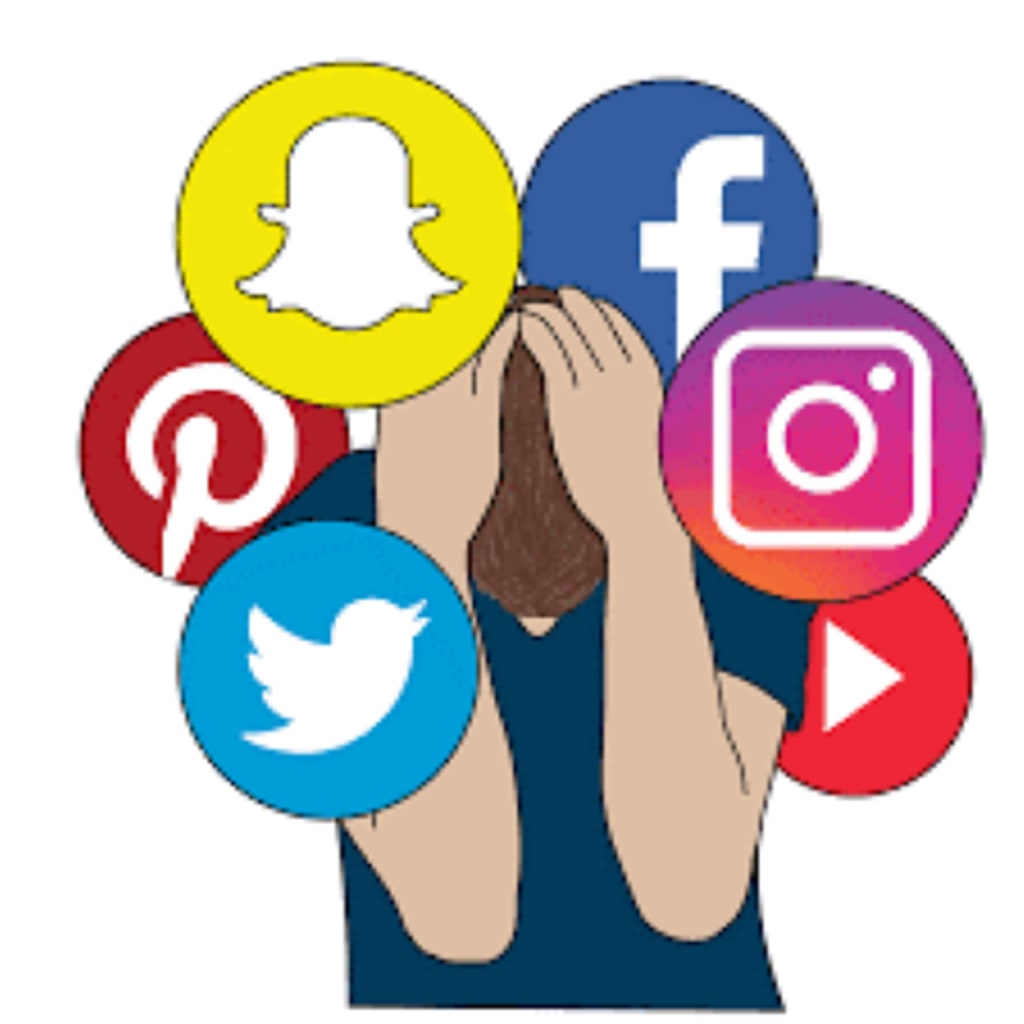The Impact of Social Media on Mental Health and Well-Being
In recent years, social media platforms have become an integral part of our daily lives. These platforms have made it easy for us to connect with friends and family, share our experiences, and stay up-to-date with the latest news and trends. However, the rise of social media has also been linked to negative effects on mental health and well-being. In this article, we will explore the impact of social media on mental health and well-being.

What is Social Media?
Before we delve into the impact of social media on mental health and well-being, let's define what we mean by social media. Social media refers to online platforms that allow users to create and share content, engage in social networking, and participate in online communities. Some popular social media platforms include Facebook, Twitter, Instagram, and Snapchat.
The Positive Impact of Social Media
While social media has been linked to negative effects on mental health and well-being, it's important to acknowledge that it can also have positive impacts. For example, social media can be a valuable tool for staying connected with friends and family, especially for those who live far away. It can also provide a sense of community and support for individuals who may feel isolated in their daily lives.
The Negative Impact of Social Media
Unfortunately, the negative impact of social media on mental health and well-being cannot be ignored. Studies have found that excessive use of social media can lead to increased feelings of anxiety, depression, and loneliness. Additionally, social media use has been linked to poor sleep quality and disrupted circadian rhythms.
Addiction and Dependence
One of the most significant negative impacts of social media on mental health and well-being is addiction and dependence. Social media platforms are designed to be addictive, with features like notifications and likes triggering the release of dopamine in the brain. This can lead to compulsive use of social media, which can have a detrimental impact on mental health and well-being.
Cyberbullying
Another negative impact of social media is cyberbullying. Cyberbullying refers to the use of technology to harass, intimidate, or humiliate someone. Cyberbullying can be particularly damaging to mental health and well-being, as it can lead to feelings of shame, anxiety, and depression.
Comparison and FOMO
Social media can also contribute to feelings of comparison and FOMO (fear of missing out). Social media platforms are often used to showcase the highlights of people's lives, leading to unrealistic expectations and feelings of inadequacy. This can have a significant impact on mental health and well-being, especially for those who are vulnerable to comparison and perfectionism.
Tips for Healthy Social Media Use
While the negative impact of social media on mental health and well-being cannot be ignored, it is possible to use social media in a healthy way. Here are some tips for healthy social media use:
Set Boundaries
Set boundaries around your social media use, such as limiting the amount of time you spend on social media each day. You can also turn off notifications or use apps that help you monitor your social media use.
Be Mindful of Your Social Media Use
Be mindful of how social media makes you feel. If you find that certain accounts or platforms are triggering negative emotions, it may be time to take a break or unfollow those accounts.
Connect in Real Life
While social media can be a valuable tool for staying connected with others, it's important to also connect in real life. Make time to see friends and family in person, and participate in activities that bring you joy and fulfillment.
Practice Self-Care
Finally, practice self-care to support your mental health and well-being. This can include activities like exercise, meditation, or spending time in nature. Taking care of your physical and emotional needs can help you build resilience and cope with the negative impacts of social media.
Conclusion
In conclusion, while social media can have positive impacts on our lives, it's important to acknowledge the negative impacts on mental health and well-being. Addiction and dependence, cyberbullying, and comparison and FOMO are just a few examples of how social media can negatively affect our mental health. By setting boundaries, being mindful of our social media use, connecting in real life, and practicing self-care, we can mitigate these negative effects and promote our mental health and well-being.
FAQs
Can social media cause depression?
Excessive use of social media has been linked to increased feelings of depression. However, it's important to note that social media use alone is unlikely to cause depression. Other factors, such as genetics, life events, and stress, can also contribute to the development of depression.
What is cyberbullying?
Cyberbullying refers to the use of technology to harass, intimidate, or humiliate someone. This can include sending threatening messages, sharing embarrassing photos or videos, or spreading rumors or gossip.
Can social media addiction be treated?
Yes, social media addiction can be treated. Treatment options may include therapy, medication, or a combination of both. It's important to seek help if you feel that your social media use has become compulsive or is negatively impacting your life.
Is it possible to use social media in a healthy way?
Yes, it is possible to use social media in a healthy way. Setting boundaries around your social media use, being mindful of how it makes you feel, and practicing self-care can all help promote healthy social media use.
How can I talk to my child about social media use?
It's important to have open and honest conversations with your child about social media use. Encourage them to be mindful of how social media makes them feel and to set boundaries around their use. It's also important to educate them about the risks of cyberbullying and how to stay safe online.
About the Creator
ADITYA SALVE
My Name is Aditya Salve, and I am a beginner graphic designer with a growing interest in content writing. I have completed my training in Adobe Photoshop and After Effects, and I am currently learning 3ds Max to expand my skill






Comments
There are no comments for this story
Be the first to respond and start the conversation.